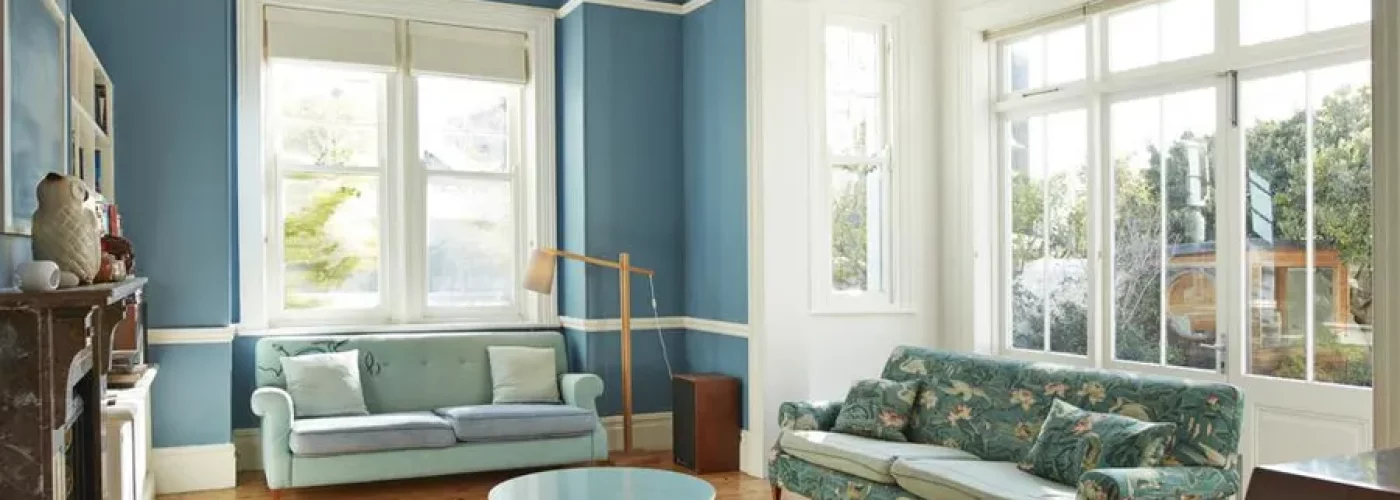At the heart of architecture, there’s a silent player that often goes unnoticed–yet it holds immense sway over how a space feels–the window. It’s not just a gap in the wall–it’s the soul of the room, inviting in light, air, and life. Can you picture a living room bathed in the soft glow of the morning sun or an office lit by the calming rays of the afternoon? Windows make that magic happen. They’re thoughtfully placed to capture the perfect blend of light and shadow that breathes vibrancy into buildings, making them feel like living entities in harmony with their surroundings.
Purpose-Meets-Beauty in Window Design
But windows aren’t just about the beauty and views–imagine a stifling room suddenly revived by a cool breeze simply because someone decided to open a window. They bring in air to refresh and reset stuffy spaces–making us feel alive and connected to nature’s rhythms. In winter, they’re our silent shields and keep the warmth huddled inside like a nesting bird. Clever window design also aids in cutting down the energy bills–with features that keep the heat out when it’s sweltering and in when it’s freezing.
Architects don’t play eeny-meeny-miny-mo with windows—they’re finely tuned instruments in the symphony of a building’s design. The style, shape, and size of each window are meticulously chosen to sing in harmony with the building’s character. From the grand, stained-glass canvases that adorn cathedrals to the sleek lines of glass in modern homes, windows tell a story of their own–adding depth, context, and emotion to architectural narratives.
A Pane’s Purpose: The Impact of Cleanliness
However, even the most stunning window loses its charm when smudged or grimy. Clean windows are like the perfect pair of glasses, allowing us to see the world with clarity and brilliance. They ensure that the architect’s vision doesn’t fade behind layers of dust and dirt. This is why immaculate windows are not just a matter of appearance, but a respect for the design and the experiences it’s meant to craft. Professional window cleaning services work their magic so windows can continue to be transparent storytellers. They’re armed with the right tools and know-how and guarantee that no streaks or spots mar the view.
Most Popular Designs
When it comes to the most beloved window designs, there are a few that stand out for their style, functionality, and the way they connect us to the outside world. First up are double-hung windows, a classic choice loved for their traditional look and versatility, with two sashes that slide up and down for variable ventilation. Then there’s the picture window–a large fixed pane that offers uninterrupted views and floods a room with natural light which makes it perfect for showcasing dramatic vistas. Casement windows–attached to their frame by one or more hinges and operated by a crank, swing outward like a door, providing excellent airflow and a charming, often European flair. Bay windows–with their multi-paneled, protruding design–create a cozy alcove inside and give homes a distinctive exterior appearance while capturing light from multiple angles. And lastly–sliding windows–which open horizontally with one moving sash, offer a sleek and practical solution for modern homes (inviting in breezes and saving space where a swing-out window might be impractical). These popular designs each bring their unique touch to both the interior atmosphere and architectural character of a building.
The Clear Connection: Windows as Emotional Anchors
Windows do more than let light in and keep the weather out–they’re emotional anchors that subtly influence our moods and experiences. In architecture–they’re among the few elements that directly appeal to our senses, creating a bridge between the security of the indoors and the wild freedom of the outside. They frame our daily dramas–from the first cup of coffee at dawn to the last flickering light of dusk.
In the grand story of architecture, windows are crucial in every chapter that makes a building more than just a structure–they’re silent poems written on the walls, offering a constant stream of natural beauty while serving practical needs.





